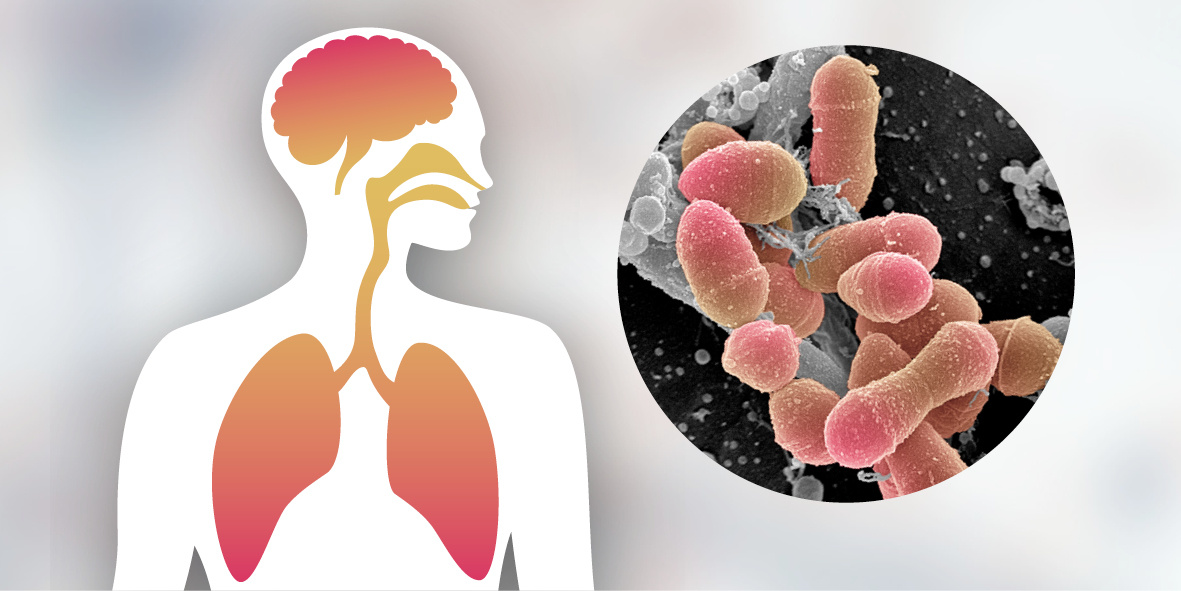According to the WHO, more than one million people worldwide die of pneumococcal infections every year. Young children, elderly and immunocompromised persons are particularly affected. After the introduction of anti-pneumococcal vaccines, the number of severe outcomes has declined. However, vaccines only cover a small part of the more than 90 different serotypes of pneumococcus (lat. Streptococcus pneumoniae). Developing vaccines with a broader spectrum and pneumococcal-specific antibiotics are necessary to provide better protection against severe pneumonia and meningitis.
“Achilles heel" of the pathogen
A weak point of pneumococcus is the transport protein LicB, which is embedded in the bacterial membrane and imports vital choline molecules from the environment. It was already known that the bacteria cannot survive without LicB, but nobody knew anything about its architecture, mechanism or function. "Using nanobodies, which are small antibody fragments, we have been able for the first time to solve the molecular structure and the mode of action of LicB, revealing how to inhibit the protein and thus the uptake of choline," says the study leader Prof. Camilo Perez from the Biozentrum of the University of Basel. "Repurposing these nanobodies and identifying other small inhibitory molecules might be a promising approach to fight pneumococcal infections."
LicB protein transports essential choline molecules
Choline molecules play an important role for the virulence of pneumococcus. They are required for bacterial adhesion to host cells, for example, during invasion of lungs or brain. Additionally, these molecules contribute to immune evasion of the pathogen. The outer layer, the cell wall, of pneumococcus is decorated with countless choline molecules. However, since the bacteria cannot produce choline themselves, they must actively import the molecule from the surrounding environment.
This is the job of the transport protein LicB, which binds and transports choline into the cell. The more choline molecules are around, the faster their uptake, making more efficient the subsequent modifications of the cell wall. "Using cryo-electron microscopy, we have figured out how LicB is embedded in the membrane and how its conformation would change during choline transport," says Perez. Performing X-ray crystallography, the researchers were also able to identify the exact binding site of choline in the LicB transporter. Knowing how the protein works is essential for the design of effective inhibitors targeting LicB.
Import of the neurotransmitter acetylcholine
In their study, the researchers have also demonstrated that pneumococcus can not only import and utilize choline, but also acetylcholine. This molecule is one of the most important neurotransmitters in the brain. "Once entering the brain, the pathogen might start using acetylcholine as choline source," explains Perez. "We found that the pathogen is able to import this neurotransmitter, cleave it and use the released choline for modification of their cell wall."
Nanobodies to fight pneumococcal infections
The nanobodies selected by Perez' team to elucidate the LicB structure remain of interest. Many of them could be repurposed as a new class of LicB inhibitors or applied to identify crucial sites which can be targeted by novel antibiotics to treat pneumococcal infections.
Original publication:
Natalie Bärland, Anne-Stéphanie Rueff, Gonzalo Cebrero, Cedric A.J. Hutter, Markus A. Seeger, Jan-Willem Veening, Camilo Perez. Mechanistic basis of choline import involved in teichoic acids and lipopolysaccharide modification. Science Advances, published online 2 March 2022
Contact: Communications, Katrin Bühler



